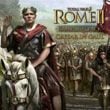Game Guide - Essential gameplay changes
The gameplay mechanics in Rome II: Caesar in Gaul are mostly the same as in the base game, however, there are some important changes ignorance of which may lead you into serious trouble or even cost you victory.

The first and most obvious change is a new campaign map. This time you are not invited into the entire antic world, but only a part of it: Gaul and southern Britain. The new area is divided into many smaller regions, while provinces often consist of only two locations. This is why cities protected with walls are much more frequent sight. This fact compels you to equip your army with more siege engines. This is why creating engineer legions is very helpful, when you want to quickly expanse your territory.

Another change that you will notice nearly at the very beginning, is the alteration of the time passage. Each turn lasts only 15 days, thus full calendar consists of 24 turns. This division enabled introduction of variable seasons, which significantly affect gameplay. Now most battles are fought during spring through autumn period, while in winters you are resting: snow drops not only slow down armies, but also in most cases cause great losses in men because of sicknesses and cold. An exception from that rule are the Suebi, whose legions are resistant to cold. This is why only the German tribes are able to wage wars all year round. You should take this under consideration while planning your next move, because otherwise an enemy may strike when your troops are weakened. On the other hand, while commanding the Suebi winter becomes a perfect opportunity to conquer regions which are isolated from others by snow.
Slower passage of time also means that your agents will rather not die by natural causes. In Rome II: Caesar in Gaul you may easily advance your every agent to the maximum level, provided that they will not get killed by an enemy.

Diplomacy has also gone through slight changes. As the time passes and your nation develops, other factions will grow suspicious of you and sooner or later will declare war on you. Keeping lasting alliances is much harder in Rome II: Caesar in Gaul than it was in the base game. This is why you should, as far as it is possible, conquer the neighbouring nations, instead of protecting them. Of course, initially you will not be able to defeat all nearby tribes - this is when military alliances are perfect for securing your borders, while your armies are busy conquering new territories. However, you should try to become self-reliant as soon as possible, because after some time all remaining factions will turn against you.
Apart from aforementioned changes, there have been some other minor alterations, which influence gameplay too. Domestic policy has been reduced to minimum - you may either completely ignore it or promote your commanders to higher positions from time to time in order to get small bonuses to province management.
The leader of your faction cannot die. In situations when other commanders normally would die in battle, your leader only gets heavily wounded and after several turns resumes leadership over his army. It is possible to instantly replace one commander with another, so the leader is able to quickly move around the map and take part in every major battle.
Technology tree is split into two categories: technologies requiring time and those requiring money. The former work exactly as the technologies in the base game. The latter, in turn, require more and more money, however, these can be developed in just one turn.
You are not permitted to copy any image, text or info from this page. This site is not associated with and/or endorsed by the SEGA or Creative Assembly. All logos and images are copyrighted by their respective owners.
Copyright © 2000 - 2025 Webedia Polska SA for gamepressure.com, unofficial game guides, walkthroughs, secrets, game tips, maps & strategies for top games.
